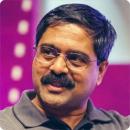Rocky Mountain Software Symposium
November 16 - 18, 2012
Speakers
Tim Berglund
VP Developer Relations at Confluent
Tim is a teacher, author, and technology leader with Confluent, where he serves as the Vice President of Developer Relations. He is a regular speaker at conferences and a presence on YouTube explaining complex technology topics in an accessible way. He tweets as @tlberglund, blogs every few years at http://timberglund.com. He has three grown children and two grandchildren, a fact about which he is rather excited.
Jeremy Deane
Director of Architecture
Jeremy Deane is innovative technology leader, conference speaker, and technical author with diverse experience, in premier technical settings, with proven expertise in Enterprise Architecture, Software Architecture, and Software Process Improvement.
Neal Ford
Director / Software Architect / Meme Wrangler
Neal is Director, Software Architect, and Meme Wrangler at ThoughtWorks, a global IT consultancy with an exclusive focus on end-to-end software development and delivery.
Before joining ThoughtWorks, Neal was the Chief Technology Officer at The DSW Group, Ltd., a nationally recognized training and development firm. Neal has a degree in Computer Science from Georgia State University specializing in languages and compilers and a minor in mathematics specializing in statistical analysis.
He is also the designer and developer of applications, instructional materials, magazine articles, video presentations, and author of 6 books, including the most recent The Productive Programmer. His language proficiencies include Java, C#/.NET, Ruby, Groovy, functional languages, Scheme, Object Pascal, C++, and C. His primary consulting focus is the design and construction of large-scale enterprise applications. Neal has taught on-site classes nationally and internationally to all phases of the military and to many Fortune 500 companies. He is also an internationally acclaimed speaker, having spoken at over 100 developer conferences worldwide, delivering more than 600 talks. If you have an insatiable curiosity about Neal, visit his web site at http://www.nealford.com. He welcomes feedback and can be reached at nford@thoughtworks.com.
Daniel Hinojosa
Independent Consultant
Daniel is a programmer, consultant, instructor, speaker, and recent author. With over 20 years of experience, he does work for private, educational, and government institutions. He is also currently a speaker for No Fluff Just Stuff tour. Daniel loves JVM languages like Java, Groovy, and Scala; but also dabbles with non JVM languages like Haskell, Ruby, Python, LISP, C, C++. He is an avid Pomodoro Technique Practitioner and makes every attempt to learn a new programming language every year. For downtime, he enjoys reading, swimming, Legos, football, and barbecuing.
Matthew McCullough
Training Innovator, GitHub
Matthew McCullough is an energetic 15 year veteran of enterprise software development, open source education, and co-founder of Ambient Ideas, LLC, a Denver consultancy. Matthew currently is VP of Training at GitHub.com, author of the Git Master Class series for O'Reilly, speaker at over 30 national and international conferences, author of three of the top 10 DZone RefCards, and President of the Denver Open Source Users Group. His current topics of research center around project automation: build tools (Gradle), distributed version control (Git, GitHub), Continuous Integration (Jenkins, Travis) and Quality Metrics (Sonar). Matthew resides in Denver, Colorado with his beautiful wife and two young daughters, who are active in nearly every outdoor activity Colorado has to offer.
Paul Rayner
Founder and Owner at Virtual Genius LLC
Paul is a seasoned design coach and leadership mentor, helping teams ignite their design skills via Domain-Driven Design (DDD) and Behavior-Driven Development (BDD). He gets teams unstuck through intensive coaching workshops and hands-on pair programming, combined with focused one-on-one leadership mentoring. His company Virtual Genius, provides training and coaching in collaborative design for agile teams. Paul actively serves the community: teaching classes in BDD and DDD, contributing to OSS, and co-leading the DDD Denver Meetup group.
Look for him speaking at user groups and at local and international conferences. Paul is from Perth, Australia, but chooses to live, work and play with his wife and two children, in Denver, Colorado. He tweets with an Australian accent at @ThePaulRayner and blogs at thepaulrayner.com
Nathaniel Schutta
Architect as a Service
Nathaniel T. Schutta is a software architect and Java Champion focused on cloud computing, developer happiness and building usable applications. A proponent of polyglot programming, Nate has written multiple books, appeared in countless videos and many podcasts. He’s also a seasoned speaker who regularly presents at worldwide conferences, No Fluff Just Stuff symposia, meetups, universities, and user groups. In addition to his day job, Nate is an adjunct professor at the University of Minnesota, where he teaches students to embrace (and evaluate) technical change. Driven to rid the world of bad presentations, he coauthored the book Presentation Patterns with Neal Ford and Matthew McCullough, and he also published Thinking Architecturally and Responsible Microservices available from O’Reilly. His latest book, Fundamentals of Software Engineering, is currently available in early release.
Ken Sipe
Cloud Architect & Tech Leader
Ken is a distributed application engineer. Ken has worked with Fortune 500 companies to small startups in the roles of developer, designer, application architect and enterprise architect. Ken's current focus is on containers, container orchestration, high scale micro-service design and continuous delivery systems.
Ken is an international speaker on the subject of software engineering speaking at conferences such as JavaOne, JavaZone, Great Indian Developer Summit (GIDS), and The Strange Loop. He is a regular speaker with NFJS where he is best known for his architecture and security hacking talks. In 2009, Ken was honored by being awarded the JavaOne Rockstar Award at JavaOne in SF, California and the JavaZone Rockstar Award at JavaZone in Oslo, Norway as the top ranked speaker.
Brian Sletten
Forward Leaning Software Engineer @ Bosatsu Consulting
Brian Sletten is a liberal arts-educated software engineer with a focus on forward-leaning technologies. His experience has spanned many industries including retail, banking, online games, defense, finance, hospitality and health care. He has a B.S. in Computer Science from the College of William and Mary and lives in Auburn, CA. He focuses on web architecture, resource-oriented computing, social networking, the Semantic Web, AI/ML, data science, 3D graphics, visualization, scalable systems, security consulting and other technologies of the late 20th and early 21st Centuries. He is also a rabid reader, devoted foodie and has excellent taste in music. If pressed, he might tell you about his International Pop Recording career.
Venkat Subramaniam
Founder @ Agile Developer, Inc.
Dr. Venkat Subramaniam is an award-winning author, founder of Agile Developer, Inc., creator of agilelearner.com, and an instructional professor at the University of Houston.
He has trained and mentored thousands of software developers in the US, Canada, Europe, and Asia, and is a regularly-invited speaker at several international conferences. Venkat helps his clients effectively apply and succeed with sustainable agile practices on their software projects.
Venkat is a (co)author of multiple technical books, including the 2007 Jolt Productivity award winning book Practices of an Agile Developer. You can find a list of his books at agiledeveloper.com. You can reach him by email at venkats@agiledeveloper.com or on twitter at @venkat_s.
Craig Walls
Author of 'Spring in Action' and 'Spring AI in Action'
Craig Walls is a Principal Engineer, Java Champion, Alexa Champion, and the author of Spring AI in Action, Spring in Action, and Build Talking Apps. He's a zealous promoter of the Spring Framework, speaking frequently at local user groups and conferences and writing about Spring. When he's not slinging code, Craig is planning his next trip to Disney World or Disneyland and spending as much time as he can with his wife, two daughters, 1 bird and 2 dogs.
James Ward
Developer Advocate for GCP
James Ward is a software developer who shares what he learns with others through presentations, blogs, demos, and code. After over two decades of professional programming, he is now a self-proclaimed Typed Pure Functional Programming zealot but often compromises on his ideals to just get stuff done. After spending too many sleepless nights in data centers repairing RAID arrays, he now prefers higher-level cloud abstractions with appropriate escape hatches. James is a huge Open Source proponent, hoping to never get burned by lock-in again.












